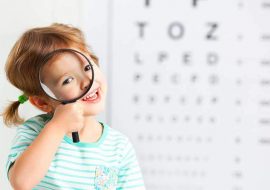
The concept of aging, which refers to the gradual loss of functionality in various systems of the body, has different dimensions (chronological, biological, physiological, psychological, socio-cultural, economic, and social). The psychological dimension of aging is one of these dimensions and is expressed by the concept of psychological aging. Psychological aging refers to the decline in mental functions and changes in behavioral adaptation abilities that occur in individuals during the elderly period. The transition to the retirement period, the emergence of various diseases, and physical losses in old age lead to various problems. Along with these problems, a decrease in cognitive skills and changes in mental characteristics are observed in elderly individuals.
Changes in Cognitive Skills
Changes in cognitive skills in psychological aging generally consist of changes in areas such as intelligence, attention, learning, memory, language, reasoning, and cognitive flexibility. Due to the loss of nerve cells in old age, changes occur in mental functions. Slowing down of perception and thinking speed, inattentiveness, and a decrease in memory power can occur with aging. Cognitive abilities such as learning new information, calculating, problem-solving, and effective speaking can also change during this period.
Changes in Mental Behaviors
With the physical losses experienced in old age, the physical strength of elderly individuals also decreases, and changes in behavioral adaptation abilities are observed. Physical losses and changes in cognitive skills increase the feeling of inadequacy in elderly individuals. Elderly individuals in this period may experience concerns about becoming a burden to their family, being dependent, and the deterioration of their health. Those in old age who worry about being alone in the future may begin to frequently question their past during this period. Therefore, various fears such as the fear of death and the fear of being alone may arise in elderly individuals. Additionally, elderly individuals whose social roles undergo changes in old age may lose their self-confidence. In the face of all these changes, elderly individuals who have difficulty adapting to new situations may experience mental breakdowns.
Successful Aging
The physical losses and health deterioration experienced in old age have significant consequences for individuals. However, it is known that the mental state is very effective in the successful aging of individuals. Keeping one’s social environment and relationships alive during the process of preparing for old age, taking preventive measures regarding health problems, making efforts to develop mental and physical functions, and looking at life positively are defined as successful aging. Factors affecting successful aging also affect the psychological dimension of aging and are closely related to the morale of the elderly. Elderly individuals with high morale can reduce the negative effects of psychological aging.
Reducing the Negative Effects of Psychological Aging
The quantity of social relationships ensures the satisfaction of needs such as love, commitment, and self-esteem in elderly individuals. This affects the psychological health of the elderly, leading to an increase in morale. Elderly individuals with strong family relationships and social relationships are less affected by the negative effects of aging. Elderly individuals who receive family support have higher self-confidence, and their anxiety levels are significantly reduced. The strength of family relationships creates a positive effect on the life satisfaction of the elderly.
Engaging in activities appropriate to the strength and competence of elderly individuals ensures an active life, both maintaining high morale and supporting their cognitive functions. Being involved in activities that enhance the quality of life for the elderly affects their coping skills with problems. Supporting these skills positively enhances the ability of elderly individuals to hope. In this way, the negative effects of psychological aging are reduced.
References:
Asi Karakaş, S., Durmaz, H. (2017) Psychological characteristics and morale of the elderly period. Kocatepe Medical Journal, 18, 32-36. Eyüboğlu, C., Şişli, Z., Kartal, M. (Life cycle and the psychological dimension of old age. Turkish Family Physician, 3(1), 18-22.












